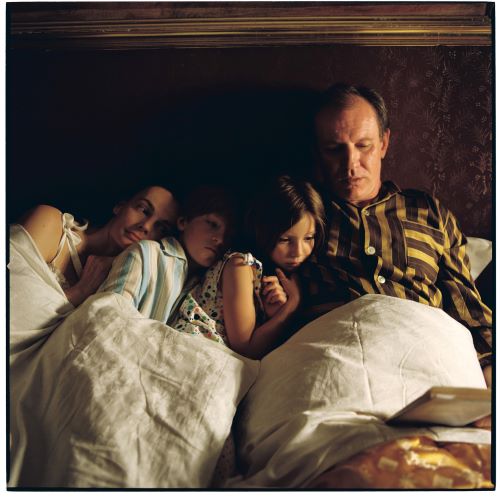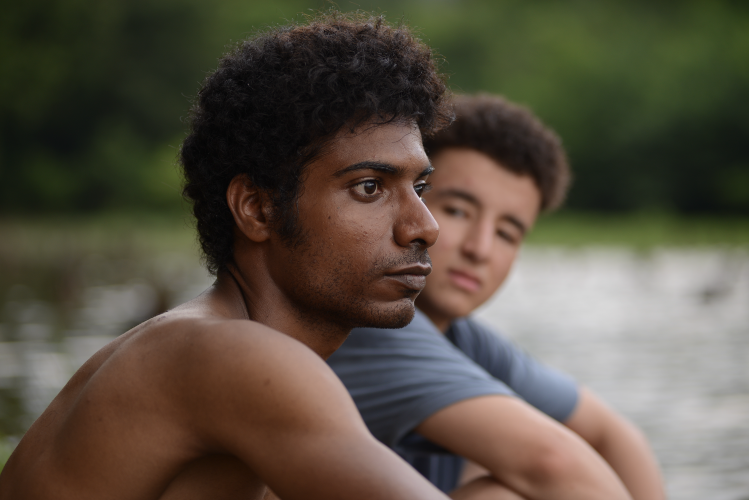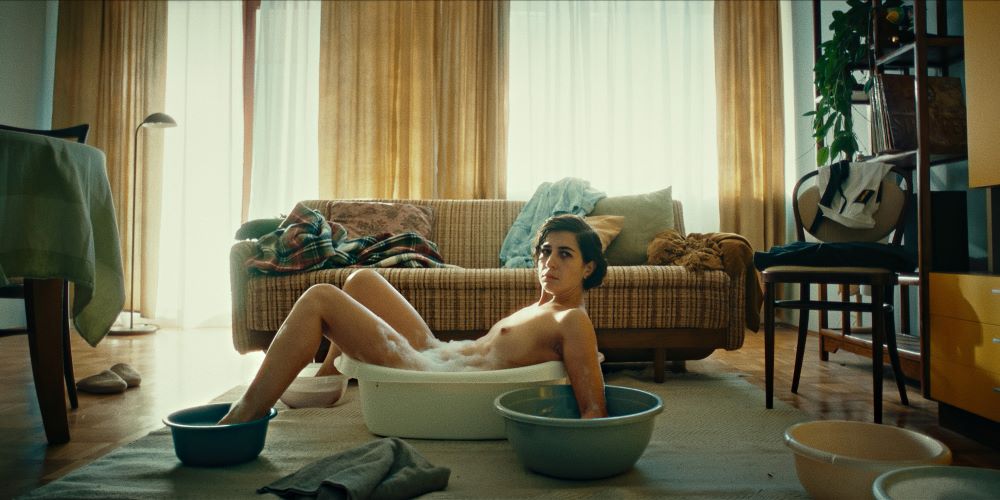The Golden Anchor Competition for Debut Films is one of the most intriguing programs, for it showcases the work of directors who are less known to the general public, and usually offers marvelous surprises. Although I haven’t yet had the opportunity to see all ten films in this program, the three films I’ve seen in preview struck me, not only with their excellent quality, but all three – each in its own way – touch on a similar theme: the individual’s struggle within an oppressive regime. Beata Parkanová’s The Word is set in Czechoslovakia of 1968, a critical time in the country’s history, when the Warsaw Pact Invasion brought an end to the reforms and new freedom of the Prague Spring, strengthening the grip of the Communist Party. Natalia Sinelnikova’s We Might As Well Be Dead is set in an unspecified dystopian era and location, that feels like a view of global culture’s near future, while Sadaf Foroughi’s Summer with Hope is set in present-day Iran, and in light of recent events – the death of Mahsa Amini in police custody and subsequent events, resonates with timeliness.

The strength of Parkanová’s film is in its focus on the intimate circle of Václav, a respected notary public, and his family. The political events of the time take place off-stage, as it were, and are experienced through their impact on daily life. Martin Finger and Gabriela Mikulková deliver outstanding performances as Václav and Vera, creating robust, complex characters and a portrait of a marriage of contrasts and equals. Dealing with probate law and other domestic legal issues, Václav gently but firmly guides his clients to just resolutions, taking care to protect those who are vulnerable. He does not hesitate to educate and admonish, appealing to the emotions, as he tells a pair of squabbling siblings “Imagine how your mother would feel if she could see you now.” With Václav active in the community coaching the swimming team and other volunteer efforts, Vera is the one who keeps the family going, ruling with a firm hand, yet with endless generosity and affection. When the family vacations, Vera is the one who jumps up from the beach towel to shout out – stop throwing sand – while Václav is the one who bends to daughter Emma’s wishes. Vera is fierce in her criticism, and just as fierce in the power of her love, which will be severely tested. The shadow looming over Václav is the Communist Party, of which he is not a member. There is constant pressure on him to join, for when such a well-liked, prominent member of the community refuses to join, it makes the Communist Party look bad. When two Party members visit his office to encourage him to sign, Václav looks like a man facing his doom, yet stands firm, even though he knows the consequences can be severe. But how long can he hold out?

Omid, whose name means “hope” in Persian, is a typical teenager in so many ways. He loves to swim and go out dancing at night and cajoles his mother Leili (Leili Rashidi) to let him drive, even though he doesn’t have his license yet. Mehdi Ghorbani imbues Omid with the shifting moods, the desire for independence, the boundless energy and bursts of joy that mark adolescence. Together with his uncle Saadi (Alireza Kamali) and mother, Omid has travelled from Teheran to northern Iran on the Caspian coast to compete in a swim meet. Yet when they arrive, he is barred from competing due to a technicality. That is the story on the surface, yet the force of the film lies in all that is beneath the surface, all that is not explicitly stated. The anguish generated runs deep, and it appears that there is more at stake than a swimming competition. Omid’s parents are on the verge of a divorce, the father is an ominous presence in the background, conveying his wishes and decrees through phone calls. Omid is intent on proving himself as a swimmer and wants a place on the national team. Although the swimming coach Kamran (Milad Mirzaee) was insistent on excluding Omid, claiming that although he received an invitation, the competition is for club members only, the assistant coach Mani (Benjamin Peyrovani) suggests an alternative. There is also an open water competition, which Omid can slip into using the invitation he received. The only catch is that open water swimming is not Omid’s event, all his training has been in a swimming pool. Mani offers to help him train. There is a feeling of secrecy and mystery throughout the film, and a constant sense of outside forces at work – social hierarchy, government, culture, religion – all influencing people and events. The cinematography is wonderfully dynamic. Much of the friendship between Omid and Mani is seen literally from a distance most of the time, lighting a bonfire at night or running on the beach. Images are intentionally fragmented as if to emphasize that we can only see and know part of the picture. The relationship between Omid and Mani is suspect in the eyes of the community. “You are drawing attention,” Leili tells her son. And that is dangerous.

We Might As Well Be Dead is as dark and hilarious as the title implies. Anna (Ioana Iacob) is a security officer in an exclusive community, a haven away from the implied dangers outside. As they sing at a community gathering, “we’re safe in here within these walls”. Admission is voted on by a committee, and people are desperate to be accepted. It must be rough out there. Yet perhaps all is not quite perfect within the community. Anna’s daughter Iris (Pola Geiger) has secluded herself in the bathroom and refuses to come out at all. She receives her meals through an opening in the bottom of the door. The relationship between the two is a close one despite the bizarre situation, and their conversations – tense and affectionate, are both funny (as when Anna is forced to take a bath using several plastic tubs) and poignant. When someone’s dog goes missing it sets off a wave of suspicion and hysteria in the community from which no one is immune. Anna tries to be a voice of reason, but to no avail, and the climate of fear escalates. Suddenly differences of language and culture become significant, a way of separating “us” and “them”. People begin arming themselves for protection from the invisible menace, and currying favor with members of the board, to ensure their future in the community. Ioana Iacob delivers a restrained yet strong performance as a mother trying to care for her daughter and provide a safe environment for her, and as a member of the community trying to fulfill her role as security officer and speak out against the wave of panic. The extreme reactions within the community are amusing to view and terrifying in their implications, all leading to what is perhaps an inevitable conclusion.
The full list of films participating in the Golden Anchor Competition may be found on the Haifa International Film Festival website.





